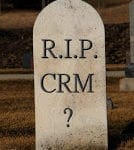Marketing and Business Development Success in TheNewNormal

As states across the country consider lifting restrictions and allowing business and other activities to resume, many businesses are anticipating what operations will look like in the weeks, months and even years to come. What does #TheNewNormal mean for your own team and your clients? Here is what we are hearing from our clients, along with a few predictions of our own.
It’s Not Business as Usual
Firms of all sizes are instituting cost-cutting measures in the form of salary reductions, layoffs and furloughs. Some partners are also being asked to defer distributions and forego bonuses and even contribute capital. Almost every firm has imposed a hiring freeze. Many summer associate programs have been canceled or suspended and others will be conducted remotely.
Staffing has changed significantly, and it likely will continue to change. We can expect to see roles and responsibilities continue to shift and evolve as working from home continues for many, at least on a partial or rotating basis. Going forward, many firms are rethinking when, how (or even if) they will return to their offices.
Firms are also re-evaluating business development priorities in light of the dramatic changes in many of their clients’ circumstances. Targeted, relationship- and data-driven business development efforts will take center stage. But since in-person entertainment, meetings and pitches continue to be deferred for the foreseeable future, firms will need to learn to adapt their business development strategies.
The Importance of Technology
Only firms that embrace technology will be able to successfully adapt to the new targeted business development model that is needed. To coordinate outreach, enhance communication, identify and leverage relationships and improve business development, firms will need the right tools such as:
- CRM – Client Relationship Management systems will allow the firm to maintain information on clients, prospects, referral sources and other key contacts. This is essential for the firm to be able to communicate and develop business with these contacts. Additionally, CRM systems will allow the firm and attorneys log interactions with those contacts so they can coordinate outreach and business development activities.
- ERM – Enterprise Relationship Management systems allow the firm create contact records from the signature blocks of emails with minimal attorney effort. Additionally, these systems can identify who knows who relationships and assess the strength of the relationships with contacts or companies based on the recency and frequency of communication.
- eMarketing – Email Marketing platforms help to create, automate and distribute the firm’s electronic communications and invitations and allow related activities to be created in the CRM. System analytics provide relevant information on who is engaging with messages. Online subscription forms allow contacts to complete registrations for webinars and other events and select the firm alerts and announcements they want to receive.
- Experience and Proposals – These systems help to collect, document and search relevant firm and attorney experience that can then be used to create pitches and proposals and successfully respond to RFPs.
- Pipelines – These tools, which frequently are included as a part of the CRM system or may be purchased separately, allow the firm and attorneys to track business development opportunities and activities and predict and measure successes and results. But acquiring and deploying the right technology is only the first step…
The Importance of Data Quality in #TheNewNormal
While technology tools are incredibly valuable, they are only as good as the data they contain. Without good data quality, you face a number of challenges including:
- Communication is challenging: If you can’t reach your target audiences and communicate with clients and prospects, your marketing efforts will be less effective.
- Events are ineffective: When invitations don’t reach the right audiences, you can’t connect with the right contacts and end up wasting time and money.
- Technology adoption plummets: If your systems are littered with duplicative, dated data, users won’t participate, and your technology investments will be wasted.
- Coordination is difficult: Unless everyone in your organization is working from the same data, it’s difficult to coordinate sales or business development efforts and activities. When the left hand (or department) doesn’t know what the right is doing, it can affect your organization’s reputation.
- Client service suffers: Data is essential to enable you to understand what your customers or clients want and anticipate their needs.
- Competitive advantage is lost:If your organization is not concerned about data, you risk falling behind your competition, because they are definitely focused on it.
- Opportunities for new business are missed: Only by continually connecting with existing customers, clients and prospects can you find opportunities for new business. Without good data, these connections can be elusive.
- Costs of compliance increase: Global and regional data privacy rules and regulations such as CASL, GDPR and CCPA are increasing, and the costs for failure to comply can be significant. These types of laws require organizations to properly handle and maintain current data on contacts in order to honor their requests for information and prevent inappropriate communications.
Additionally, to ensure that they receive value and returns on technology investments, firms also need to be sure that their data is clean, correct and complete. Complete company records should contain, at a minimum, the organization’s name, address, phone and website information. Complete contact records for people should typically contain their full name, company name, job title and email address. You may also want to include enhanced information such as a phone numbers and physical addresses, which were once considered superfluous with the demise of postal “snail” mail, but have recently regained prominence because of their necessity for compliance with global privacy regulations.
Additionally, to better target communications and business development efforts now and in the post-Covid-19 era, records should be enhanced with additional information and classifications. For instance, company records could be tagged with information related to their industry, size, revenue and number of employees. Person contacts can be designated as clients, prospects, referral sources or competitors, among other things. This type of segmentation will allow you to more easily group contacts and create lists by interests, roles, locations or other key criteria to ensure that your audience receives information and invitations that are relevant to their needs.
For additional information on some of the most helpful ways to categorize contacts, download our Contact Categorization Worksheet created after working together with hundreds of top firms and other organizations. Next we’ll focus on one of the most critical areas of marketing and business development success: Resources…
The Right Resources
Often people make an investment in technology without considering the totality of the resources they will need to succeed. Buying the software is the first cost. To get a return on your technology investments, you also need additional resources including:
Money
Firms frequently underestimate the amount of financial resources required to successfully deploy marketing and business development technology. In addition to the purchase of licenses or subscriptions, success often requires additional investments in a number of areas such as:
- Professional services to configure and implement
- Integrations with other systems or technology
- Training of system administrators and users
- Ongoing annual service and support
- Automated and/or manual data cleansing
Time
Clients sometimes ask us how long their technology implementation will take once they have purchased the software. Frequently, they aren’t particularly happy with the answer: forever. Implementation of a CRM system and related or integrated technology is not an initiative or a project, but rather a fundamental change – and improvement – in the way your organization manages its most important assets… its relationships. This means that it never really ‘ends.’ But the good news is that this means you have forever to get better at it.
People
Additionally, having the right human resources in place will also be essential to success. To support a technology implementation, proper staffing is critical. Important individuals include:
- Trainers – Training resources should be engaged early and often, as education is the key to system adoption and value. Training should be customized to the needs and requirements of select groups and/or individuals. Ongoing training should also be planned for as new features are released and new employees join.
- Data Stewards – Up to 30% of an organization’s data degrades each year, and without good data, system utilization will suffer. This means that data quality professionals must be assigned to regularly research and maintain your data.
- CRM Managers – Depending on the size of your organization, a CRM manager or administrator can be beneficial for daily maintenance of the system and handling important system tasks such as contact management, campaign distribution, event management and generating searches and reports for users.
- Business Development – The Business Development team should regularly utilize the CRM and related systems to support the professionals. They should be responsible for entering key data and liaise with the professionals to provide advice and analytics.
- Administrative Staff – Many firms leverage key staff such as secretaries or admins – many of whom may have some free time while they are working remotely – to assist the professionals in managing contacts, keeping lists updated and adding business development activities to the system.
Getting Help and Resources
As staffing and responsibilities continue to flex and evolve, outsourcing key positions can be a good option to provide temporary or long-term solutions for marketing and business development teams. These professionals are available to augment the firm’s internal team or fill a vacancy when someone leaves or is going to be out of the office for a limited or extended time.
- Data Quality Professionals – If your organization doesn’t currently have internal staff to perform data quality tasks and you aren’t able or don’t want to hire new staff, experienced outsourced data quality professionals can be secured easily – and frequently at a lower cost than internal data stewards. Outsourced data stewards are knowledgeable about CRM systems and trained in research to ensure the firm’s data is clean, correct, complete and properly formatted.
- Trainers – Experienced trainers can provide customized remote or web-based CRM training to ensure all your team members are fully fluent in the firm’s CRM’s capabilities. Outsourced trainers can provide in-person training and travel to remote offices as needed or provide remote video training for employees who are working remotely from home.
- CRM Managers or Administrators – Firms that don’t have the resources to invest in a full-time or part-time CRM Manager or Admin can now secure the expertise of an experienced outsourced professional for a few hours or more per week.
- eMarketing Professionals – These outsourced professionals are trained in leading CRM and eMarketing systems and can assist with campaign and invitation distributions, event management, reporting and analytics. They can also assist with other eMarketing tasks such as template and activity creation.
What the Future Holds
Digital and electronic marketing are the key to targeted and successful business development in the remote world of the #NewNormal as the business world tests the post-COVID-19 waters and moves forward. Don’t let inadequate or antiquated technology, bad data or the lack of resources prevent your firm from pursuing – and achieving – its marketing and business development goals.
We Can Help
If your firm’s CRM value and/or data quality are not where they need to be to support your marketing and business development initiatives during these challenging times, or if roles and responsibilities have changed due to downsizing or restructuring, the CLIENTSFirst team is happy to help. Over the past 15 years, we have helped literally hundreds of firms achieve success with CRM and related and integrated technology. Feel free to contact us for a complimentary assessment of your CRM or data quality needs.
Download the PDF
For more than a decade, the team at CLIENTSFirst Consulting has been helping professional services firms and other organizations successfully select and implement CRM and eMarketing systems to maximize value, adoption and return on investment and helping firms improve data quality through automated and manual data quality processes. If you need help achieving CRM, Data Quality or eMarketing success, please contact us at 404-249-9914 or Info@CLIENTSFirstConsulting.com.







